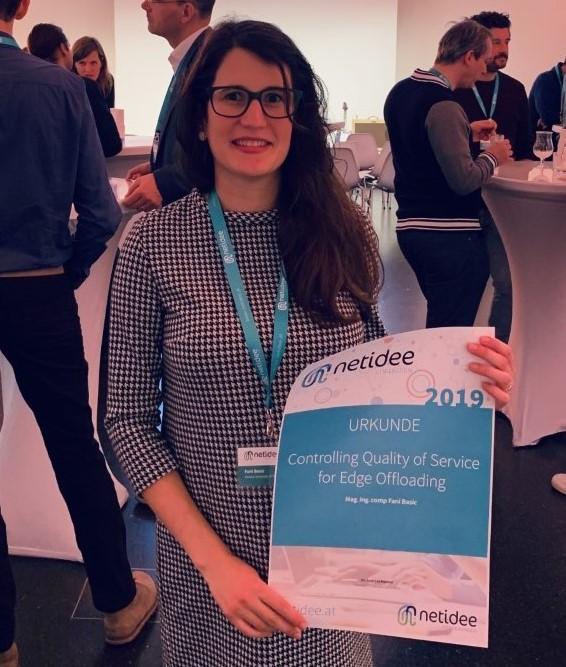
Förderjahr / / ProjektID: / Projekt: Open challenges
As Edge computing environment is highly dynamic and volatile, offloading data- and compute-intensive tasks from resource-constrained mobile devices to the resources at the edge of the network brings serious challenges.
Resource-constrained devices can benefit low latency access, low response time, longer battery lifetime by exploiting resources at the edge of the network. This is of paramount importance for time critical applications such as traffic safety in smart cities or eHealth applications. Moreover, taking user mobility into consideration, execution will occur at the geographically proximate data centers. As a consequence, huge amount of data is constantly transferred on short distances over network bandwidth resources.
Open challenges
Research on Edge computing is still in its infancy and at the time we write. Here we present some challenges we deal with in our work. Edge computing environment is highly dynamic and volatile with the following characteristics: i) Edge nodes are resource constrained in comparison to the Cloud. Load on the Edge node changes as new users arrive or depart and an unexpected flash crowd may easily overload the node; ii) Edge nodes are prone to failures. Site catastrophes like flood, fire, earthquake or coordinated cyber-attack are more likely to cause a failure in a vulnerable Edge location than in a Cloud data center; iii) Edge nodes face high mobility of UE. Consider smart city scenario with cars, bikes, trains, buses equipped with IoT devices. The dynamic scenario resulting from user mobility brings a dynamic computing demand at Edge devices. Moreover, the requirements and expectations towards the high Quality of a Service (QoS) are widely increasing with the recent advancement of 5G networks. To deal with aforementioned challenges, it is vital to implement novel and autonomic approaches for agility to the changes in operating conditions in Edge context.
Research methodologies
We outline the methodologies that would help us in dealing with open research challenges. First, control theory, which is widely used to deal with the behavior of dynamical systems. The adoption of well-established, mathematically grounded control theory in our work is motivated by the ability to design and implement feedback loops to guarantee the system stability and application performance despite disturbances. During our research, to deal with dynamic scaling on Edge resources, besides control theory and PID controllers we might investigate machine learning methods due to their robustness and ability to adapt themselves in case of system changes. Therefore, we will consider reinforcement learning, a well-known type of unsupervised learning, and the Q-learning, a widely used reinforcement learning algorithm. For the problem of workflow scheduling within a heterogeneous distributed Edge resource, we might use methodologies such as dynamic programming, more specifically linear programming. However, this problem is known to be NP-hard and linear programming used to generate optimal solutions may be computationally intensive. Therefore we aim to find near-optimal solutions with heuristic greedy algorithms or nature-inspired metaheuristics such as genetic algorithms or particle swarm optimization. Multi-objective metaheuristics might be considered to find a trade-off solution between different objectives, such as minimizing users' and providers' costs and maximizing QoS.


